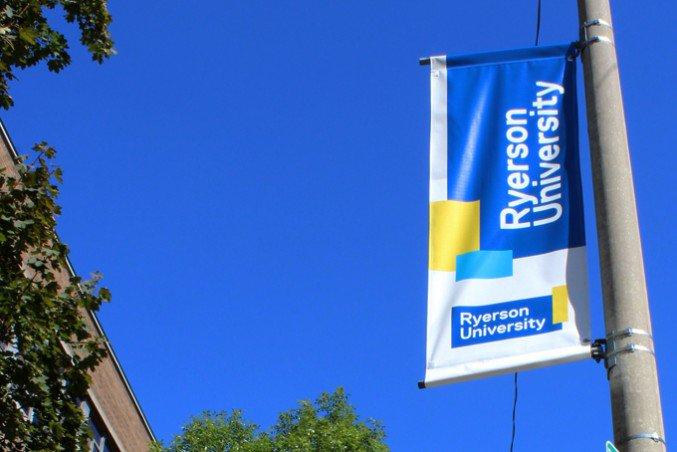By Al Downham
Ryerson is bent on adopting a unique approach towards outlining its potential law school.
“It’s not just adding a new law school to the system,” said interim president Mohamed Lachemi. “But adding something that will be meaningful, and something that will differentiate Ryerson.”
A Feb. 16 release states an originating and feasibility group is assessing how Ryerson can possibly create a law school that will prepare graduates “for today’s fast-paced legal industry.” Town halls were held Feb. 24-26 for faculty, staff and students to discuss the initiative.
A Ryerson law school is being considered, but is not confirmed.
According to Mark Lovewell — a retired Ryerson faculty member involved in the initiative — the originating committee is writing a Letter of Intent (LOI) outlining a possible curriculum, societal need and unique approach for the law school, while a feasibility study will determine its structural needs.
Darrick Heyd, a feasibility committee member and Ryerson’s senior advisor on academic space planning, said there “hasn’t been a call by the provincial government for new law schools.”
However, members supporting an on-campus law school argue traditional law schools are outdated. Law and business department chair and feasibility committee member Avner Levin said traditional law schools teach the subject similar to humanities courses.
“The challenge with legal education is that it hasn’t kept up with changes in society,” said Chris Bentley, executive director of the Legal Innovation Zone (LIZ) and Law Practice Program. Bentley has advised the initiative. “We prepare lawyers pretty much the way we did when I left law school decades ago.”
Anver Saloojee — politics and public administration professor, and chair of the feasibility committee — said Ryerson can address societal needs by improving outdated aspects of legal education. The chair said Ryerson’s particular mandate of “bringing theory and practice closer together” could help modernize legal education. Saloojee sits on both committees.
Levin said Ryerson’s potential law school could use practitioners, placements and simulated firms to give students practical experience. Saloojee said courses could also tackle modern law concerning privacy, big data and cybercrime.
“Many lawyers aren’t trained in that kind of technology,” Saloojee said.
Initiative members are considering adopting a social justice lens in some courses, tackling issues like high legal costs and accessibility of legal education or representation. The curriculum could also discuss alternatives to by-hour pay, which is popular among lawyers.
“I think the thing that’s more pressing is traditional legal representation is not affordable because lawyers, the way they work and the way they build up, puts them out of reach,” Levin said, stating law graduates struggle with high tuition costs. “It becomes very expensive for people.”
According to Levin, some of these ideas have been tested in Ryerson’s law practice program and at the LIZ. Both are informally connected to the law school initiative.
In terms of feasibility, Saloojee listed three factors in the study: space, faculty and library resources.
A 2014 statement states Heyd’s role as senior advisor on academic space planning is to be “first point of contact with academic units for their new space needs as well as renovations and alterations.”
Regarding faculty, Levin said roughly 50 Ryerson faculty members have gone to law school.
Library resources will undoubtedly need beefing up, according to Saloojee, who said most law schools have their own libraries. University of Ottawa’s Brian Dickson Law Library director Margo Jeske says the library received $1.5 million of a 2014/2015 acquisitions budget. The Law Library of Osgoode Hall Law School at York University is the largest library of its kind nationwide; the library has over 500,000 volumes.
The initiative is in early stages, but members said they’re considering town hall attendees’ advice in the study. Levin said the LOI will be posted for community review — after further comment, a full proposal will be developed and presented to the Ryerson senate, which will continue to external stakeholders if approved.













Leave a Reply